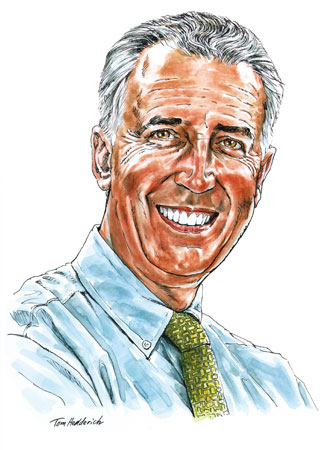Reading books doesn’t boost some people’s egos. And it’s better to have a kitchen as your backdrop than a bookshelf during Zoom calls.

I have hundreds of books at home. Half of them I’ve read, half not yet read, and half have been partially read. This month, there are four books on the “to be partially read” list: Up All Night by Lisa Napoli, Warhol by Blake Gopnik, Antifragile by Nassim Nicholas Taleb, and the Italian book that I wrote. Its title loosely (some say lousily) translates as I Was Frail: The Revenge of Vitamin B12.
The first book is about TV innovator Ted Turner. I met Turner twice formally, and four times causally, but from what I’ve read thus far in Up All Night, it looks like I know him better than the book’s author.
As for the Andy Warhol book, I only started reading it out of curiosity since the former offices of VideoAge were housed in one of his onetime residences.
I didn’t exactly choose Antifragile. I found it sitting on the coffee table in my apartment, and it made for good bathroom reading. It’s written by a former option trader who made billions from the stock market. So far, one of the more interesting parts of the book is about the advantages of securing a rent-controlled apartment in New York City.
As for the book that I wrote, I’m trying to read it to find out why the heck I wrote what I wrote! If forced to, I’ll finish the books on Turner and Warhol in order to write book reviews for VideoAge. It is doubtful that the other two books will be read in their entirety. Even Nassim Nicholas Taleb himself said that unread books are more valuable than read ones since unread books can teach things that are not yet known.
I stopped reading books in their entirety years ago when they started making me feel inadequate. The more I read, the more I realized how ignorant I was. It was too much for a fragile male ego. So I switched to newspapers because the content is familiar (as it’s generally heard first on television). I also read the “Book Review” insert that comes with the Sunday edition of The New York Times. It makes me feel better to realize that some book reviewers are almost as unenlightened as I am.
Another thing I’ve learned recently is that during Skype or Zoom meetings, be they informal conversations or formal interviews, I prefer to use my home’s kitchen as a backdrop in contrast with those who like to be featured against well-stocked bookshelves. This is because Taleb also said that a personal library should represent both what the owner knows and what he doesn’t know, and, in my case it would create a misconception.
According to NY Times Book Review guest writer Kevin Mims, a voluminous personal library shows a curious personality open to new ideas. But for a journalist like me, facts are more important than ideas.
Plus, I don’t want to project an image of being a know-it-all and risk having people ask for tips on various topics. (This actually happened once with a scruffy-looking guy who asked me for tips. I suggested he wear a tie, but the tip he was looking for was for betting on a horse.)
In addition, the kitchen backdrop brings back memories of black-and-white photos from the 1960s and 1970s seen in old magazines with celebrities and politicians all pictured inside their home kitchens. Using the kitchen as a backdrop is also useful when one doesn’t want to look like a pretentious person with radical chic notions since a journalist should be seen more as a live electrical wire that can cause a shock.
Finally, if one scrutinizes some of the books of those who like to sit in their home libraries, one often notices a large number of books that support liberal political ideas. But these days, how many depressing books can one read about the decline of democracy?
(By Dom Serafini)
Audio Version (a DV Works service)

Leave A Comment